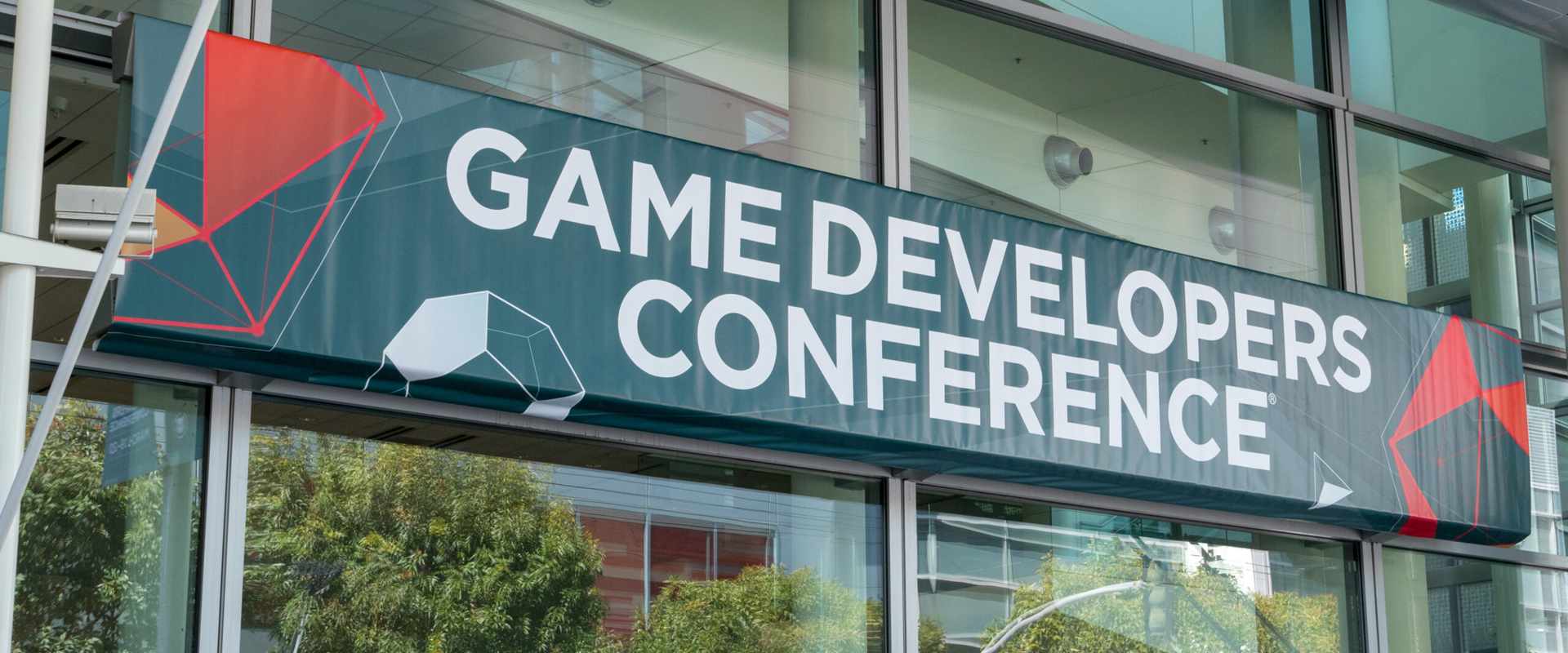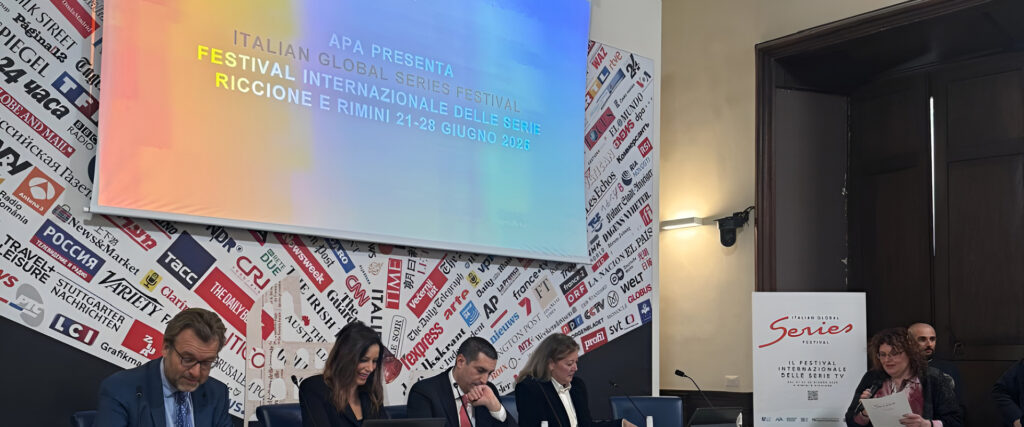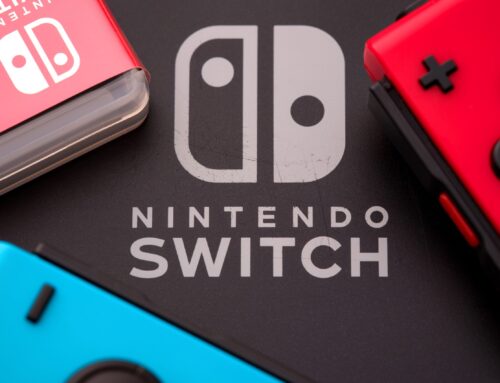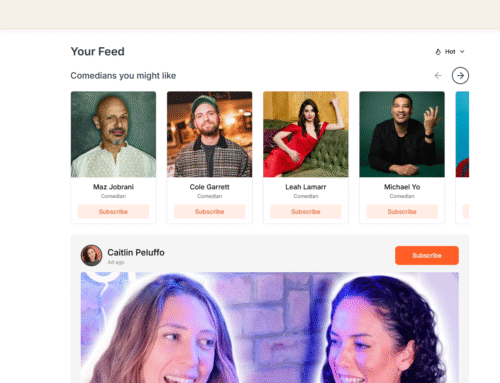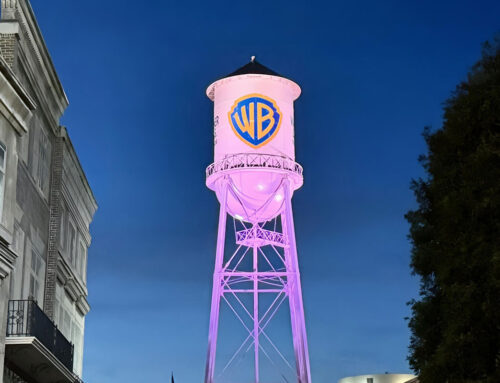Does AI Work in Gaming—or Not? Variety Takes the Pulse at the Recently Concluded GDC
With rising costs and smaller teams, AI is becoming a hot topic across the entertainment world — gaming included.
At the recently concluded Game Developers Conference (GDC), Variety’s VIP+ spoke with several professionals from the video game industry to understand if, and how, AI is truly helping their workS. According to Brian Ward, CEO of Savvy Games Group — the gaming division of Saudi Arabia’s Public Investment Fund, which invests globally in gaming companies and studios — businesses are expected to be both innovative and smart in how they use new technologies like AI. “It’s important to know if the tech we’re using is sustainable and actually useful,” he said.
Tim O’Brien, chief revenue officer at Scopely (owned by Savvy), added that more and more game teams are beginning to use AI tools in development. Scopely, known for acquiring Niantic’s gaming assets like Pokémon Go, sees AI as part of the industry’s future.
While opinions vary, one thing is clear: AI is already part of the game.
User-generated content (UGC)-oriented companies are looking at generative AI with enthusiasm, as it gives creators more tools and opportunities on their platforms.
Todd Lichten, head of entertainment partnerships at Roblox, explained that the goal of using AI is to help creators speed up their work, allowing them to focus on the more strategic aspects of campaigns. During GDC, Roblox introduced Cube 3D, a generative AI model capable of creating 3D environments and objects from text prompts, with image prompt support coming soon.
However, those working with established brands on Roblox need to use AI more carefully. Nic Hill, co-founder of Sawhorse, explained that AI doesn’t provide perfect results, but it can be used to generate drafts that artists then refine, ultimately saving both time and money.
For Rebecca Liao, CEO of Saga.xyz, AI (together with blockchain) is central to the company’s mission. Through the platform Saga Origins, licensed assets are turned into “AI agents” — animated characters that interact with users, guide them through games, and help them create their own content. Liao also highlighted the importance of monetization: thanks to blockchain, creators can securely own and distribute their digital assets with full traceability.
The use of artificial intelligence is more complex for major game studios compared to UGC platforms.
Dan Prigg, EVP and head of studio at Skydance Games, compared adopting new AI technologies to building a game from scratch, emphasizing the risks of simultaneously introducing a new team, a new game mechanic, and a new IP.
Hakan Abrak, CEO of IO Interactive (known for Hitman), believes that AI will inevitably impact the industry, but sees limited value in using it for asset creation. The focus, for now, is on improving tools and making employees more efficient.
Peter Whalen, game director of Teamfight Tactics at Riot Games, also views AI as a support tool for developers. He’s interested in how it can streamline workflows but isn’t yet drawn to using AI for concept art or music creation.
In 2024, Riot Games eliminated over 500 jobs, contributing to a total of more than 14,000 layoffs across the video game industry. With reduced staff, maintaining a steady flow of content becomes challenging, and artificial intelligence is emerging as a helpful support tool to fill the gap.
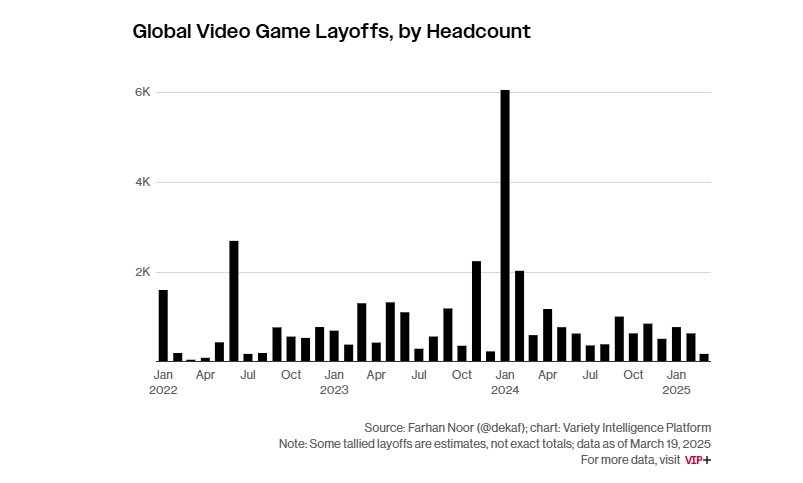
A clear example is Candy Crush Saga, which has surpassed 18,500 levels. Todd Green, general manager at King (the mobile division of Activision Blizzard, now part of Microsoft), explained that AI has become essential for level optimization: even a large human team wouldn’t be able to manage that kind of scale.
Chris Hewish, chief strategy officer at Xsolla, also highlighted AI’s advantage in terms of productivity: it’s not about reducing staff, but about doing ten times more with the same resources.
However, concerns about the impact of AI on creative work were also present at GDC. Since July 2024, SAG-AFTRA has been on strike against major game publishers, demanding protections around the use of generative AI.
Ben Starr, the English actor in The First Berserker: Khazan, supported the strike, stressing the importance of recognizing the artistic value of performance work.
Kim Belair, co-founder of narrative design studio Sweet Baby Inc. (Marvel’s Spider-Man 2, Alan Wake 2), also criticized the industry’s focus on shareholder profits over creative talent: “Crafted experiences matter, and human stories will always be at the heart of gaming.”
Source: Variety +
Share:
With rising costs and smaller teams, AI is becoming a hot topic across the entertainment world — gaming included.
At the recently concluded Game Developers Conference (GDC), Variety’s VIP+ spoke with several professionals from the video game industry to understand if, and how, AI is truly helping their workS. According to Brian Ward, CEO of Savvy Games Group — the gaming division of Saudi Arabia’s Public Investment Fund, which invests globally in gaming companies and studios — businesses are expected to be both innovative and smart in how they use new technologies like AI. “It’s important to know if the tech we’re using is sustainable and actually useful,” he said.
Tim O’Brien, chief revenue officer at Scopely (owned by Savvy), added that more and more game teams are beginning to use AI tools in development. Scopely, known for acquiring Niantic’s gaming assets like Pokémon Go, sees AI as part of the industry’s future.
While opinions vary, one thing is clear: AI is already part of the game.
User-generated content (UGC)-oriented companies are looking at generative AI with enthusiasm, as it gives creators more tools and opportunities on their platforms.
Todd Lichten, head of entertainment partnerships at Roblox, explained that the goal of using AI is to help creators speed up their work, allowing them to focus on the more strategic aspects of campaigns. During GDC, Roblox introduced Cube 3D, a generative AI model capable of creating 3D environments and objects from text prompts, with image prompt support coming soon.
However, those working with established brands on Roblox need to use AI more carefully. Nic Hill, co-founder of Sawhorse, explained that AI doesn’t provide perfect results, but it can be used to generate drafts that artists then refine, ultimately saving both time and money.
For Rebecca Liao, CEO of Saga.xyz, AI (together with blockchain) is central to the company’s mission. Through the platform Saga Origins, licensed assets are turned into “AI agents” — animated characters that interact with users, guide them through games, and help them create their own content. Liao also highlighted the importance of monetization: thanks to blockchain, creators can securely own and distribute their digital assets with full traceability.
The use of artificial intelligence is more complex for major game studios compared to UGC platforms.
Dan Prigg, EVP and head of studio at Skydance Games, compared adopting new AI technologies to building a game from scratch, emphasizing the risks of simultaneously introducing a new team, a new game mechanic, and a new IP.
Hakan Abrak, CEO of IO Interactive (known for Hitman), believes that AI will inevitably impact the industry, but sees limited value in using it for asset creation. The focus, for now, is on improving tools and making employees more efficient.
Peter Whalen, game director of Teamfight Tactics at Riot Games, also views AI as a support tool for developers. He’s interested in how it can streamline workflows but isn’t yet drawn to using AI for concept art or music creation.
In 2024, Riot Games eliminated over 500 jobs, contributing to a total of more than 14,000 layoffs across the video game industry. With reduced staff, maintaining a steady flow of content becomes challenging, and artificial intelligence is emerging as a helpful support tool to fill the gap.

A clear example is Candy Crush Saga, which has surpassed 18,500 levels. Todd Green, general manager at King (the mobile division of Activision Blizzard, now part of Microsoft), explained that AI has become essential for level optimization: even a large human team wouldn’t be able to manage that kind of scale.
Chris Hewish, chief strategy officer at Xsolla, also highlighted AI’s advantage in terms of productivity: it’s not about reducing staff, but about doing ten times more with the same resources.
However, concerns about the impact of AI on creative work were also present at GDC. Since July 2024, SAG-AFTRA has been on strike against major game publishers, demanding protections around the use of generative AI.
Ben Starr, the English actor in The First Berserker: Khazan, supported the strike, stressing the importance of recognizing the artistic value of performance work.
Kim Belair, co-founder of narrative design studio Sweet Baby Inc. (Marvel’s Spider-Man 2, Alan Wake 2), also criticized the industry’s focus on shareholder profits over creative talent: “Crafted experiences matter, and human stories will always be at the heart of gaming.”
Source: Variety +

